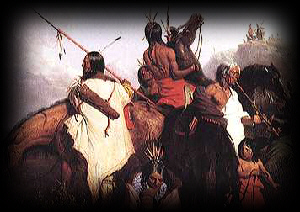John
William Wade was born on a small farm about five miles south of Morton,
Scott county, Miss., on October 14, 1877, the eldest of eight children.
His parents were
Azariah LaFayette Wade and Susan Ellen (Lingle) Wade. On his mother’s side
Mr. Wade is of English and Dutch descent. His paternal ancestors emigrated
from Ireland to this country in colonial times, settling in Maryland. They
moved through the Carolinas and Georgia to Mississippi soon after its admission
to the Union, locating in what afterwards became Jasper and Jones counties.
Mr. Wade’s grandfather,
Isaac Jackson Wade, with his several brothers enlisted in Company A of
the Fortieth Regiment of Mississippi Volunteers in the Confederate army,
some of whom fell fighting for the Southern cause.
His paternal grandmother
was Miss Adaline Tullos, a cousin of the mother of Senator A. J. McLaurin;
another of her cousins was mother of the Rev. M. T. Martin, the late Baptist
evangelist.
Soon after the
war Isaac Jackson Wade moved with his family to Scott county, Miss. Mr.
Wade’s father located on a woodland, where he spent his life improving
his little farm. Being a poor man, he was able to give his children only
limited educational advantages. His eldest son, William, entered the country
schools at the age of nine, where he spent from two to three months a year,
the remaining portion of his time assisting his father in farm work.
Beginning at the
age of sixteen he taught in the country schools during the winter months,
and helping on the farm during the remainder of the year. In September,
1896 he secured the principalship of the Pulaski High School, which position
he held for two sessions. For about three months in 1897 he was a student
in Millsaps College. In 1898 he entered the University of Mississippi,
where he was a student for four successive sessions, paying his expenses
by teaching country schools during the summer vacations.
During this time
Mr. Wade completed three courses of study, taking his bachelor’s degree
in June, 1901, to be followed a year later with the degree of Master of
Arts and Bachelor of Laws. In the law school he was graduated with special
distinction at the head of his class.
In July, following
his graduation, he entered upon the practice of law at Wilburton, Indian
Territory. The following December he was appointed Mayor of Wilburton,
a coal mining town of 5,000 inhabitants. In the following April he was
chosen to succeed himself by a vote of the people.
In September,
1903, because of the recent death of both of his parents, Mr. Wade found
it necessary to return to Mississippi. The autumn months he spent at the
old home helping to gather the crop. In December, 1903, he and one of his
former schoolmates opened a law office at Greenwood, Miss., under the firm
name of Whetstone and Wade. —EDITOR.
Return to Top



